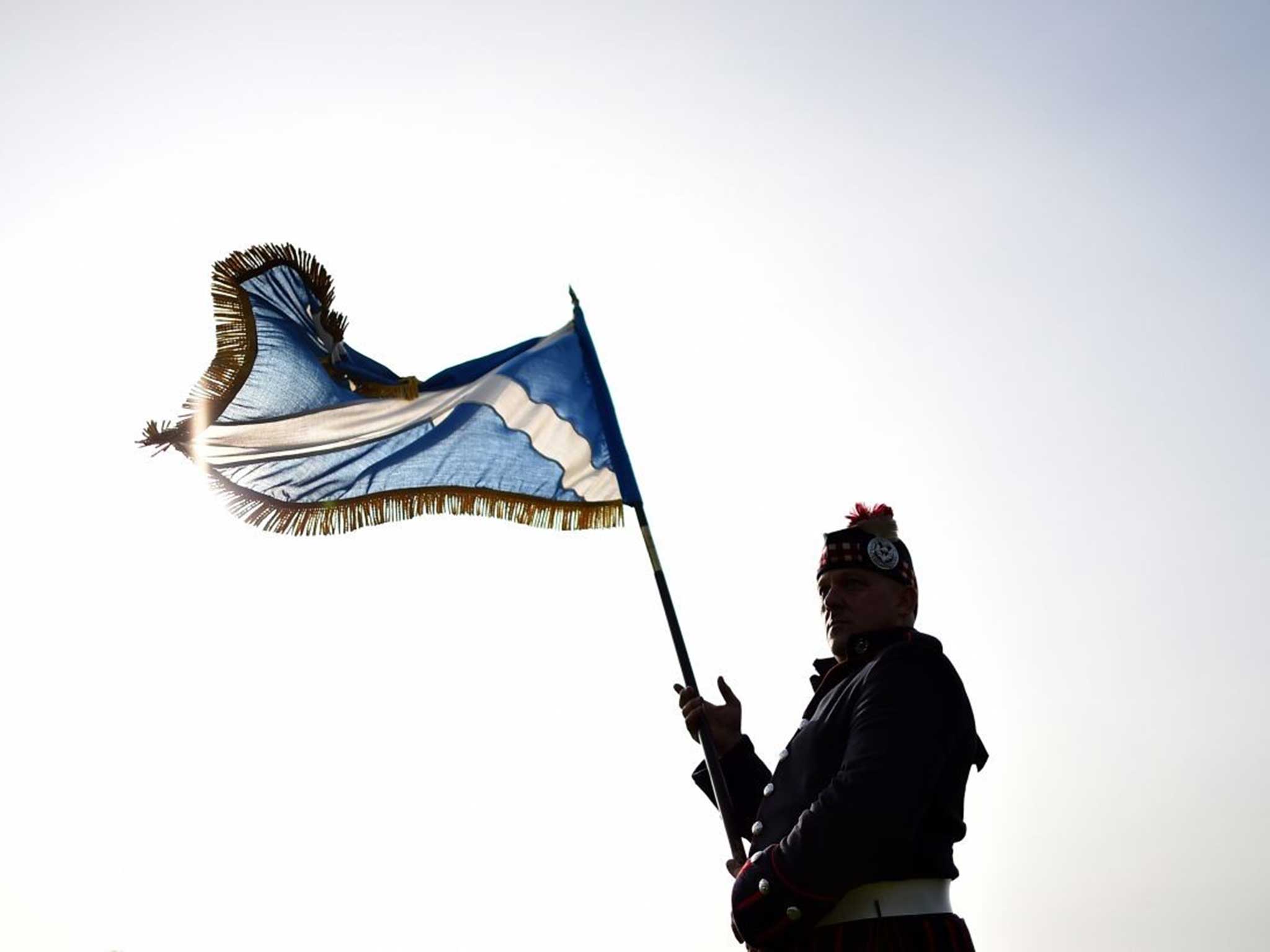Scottish independence vote: Banished for being an expat with an opinion
My viewpoint is suddenly unwanted, patronising baggage

Your support helps us to tell the story
From reproductive rights to climate change to Big Tech, The Independent is on the ground when the story is developing. Whether it's investigating the financials of Elon Musk's pro-Trump PAC or producing our latest documentary, 'The A Word', which shines a light on the American women fighting for reproductive rights, we know how important it is to parse out the facts from the messaging.
At such a critical moment in US history, we need reporters on the ground. Your donation allows us to keep sending journalists to speak to both sides of the story.
The Independent is trusted by Americans across the entire political spectrum. And unlike many other quality news outlets, we choose not to lock Americans out of our reporting and analysis with paywalls. We believe quality journalism should be available to everyone, paid for by those who can afford it.
Your support makes all the difference.Over the past four weeks or so, there has been a marked shift in the relationship I’ve had with friends who date back to my time at university. Despite the advice which advocates that politics and religion can only be divisive topics of conversation, friends who have chosen to make Scotland their home rather than indulge in diaspora wanderings like myself, don’t usually mind a spot of Westminster insider chit-chat from a political correspondent who is supposed to come laden with such information.
They are delusional, of course. My insights can be slim pickings: but they exchange what’s happening north of border – the stuff I’m missing out on – and I provide amusing tales from the Westminster village. Or rather, I did.
In the past month, the switch in tone, the dissonance, the aggressive edge – it’s all noticeably sharper, less cordial. It’s no longer about an exchange of political banter.
In short, the referendum, Scotland’s apparently open-wound dissection of its relationship with England, and the tribal nature of the warfare that has developed between the Yes and No camps, is having an effect that I failed to forecast.
I am worried that I’m losing friends that I’ve had for most of my adult life. I put the phone down on one friend who’d said, “Look, I no longer want to talk to you about this. I might call you after the vote.” It was midnight. I thought I was engaged in an argument – not the disruptive rowdy sort but the kind in which premises are listed and valid conclusions reached. Apparently not. What I was told, after merely offering what I thought voting Yes could mean, was: “Oh, my, that is so patronising. I wonder if everyone in Chelsea thinks that. Because we don’t.”
I may have been speaking to one person on the phone, but I recognised the import of the word “we” just as I did the “might” in “I might call you”.
My reaction was both a sense of loss and confusion that I may have done something wrong, something insensitive. Perhaps. But the same pattern followed exchanges with other friends – and the recognition of what I’ve become by doing no more than argue from an informed viewpoint.
What can I do? I don’t think I’ve much option. I’m clear enough about my Scottish national identity – because it’s hard to hide. I’ve never seen the nation thing as a required political add-on. But in the space of a month, that viewpoint is suddenly, from my friends’ viewpoint, unwanted, patronising baggage. I’m now outside the clan’s welcome. It feels like a form of banishment. It hurts.
And it seems entirely possible that the result of the vote this Thursday, if Yes doesn’t win, will make the situation much worse.
In place of friendship, I sense the imminent role of an unwanted collaborator, a turncoat, a traitor. The worst part? I’ve spoken to others in a similar position and they’ve said the same.